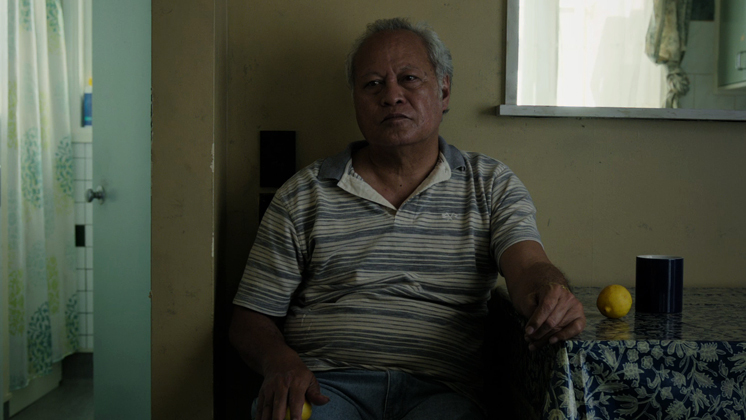Given New Zealand’s dismal domestic violence record in the modern world, parallels drawn to a Polynesian Once Were Warriors would be grossly unfair, however director/writer Tusi Tamasese’s portrayal of ‘love lost’ is wonderfully brought to life on the silver screen in One Thousand Ropes.
Seeing this film has given me a glimpse of hope in the local film industry. Yes, Pork Pie & Poi E are excellent example of quality and while movies like Moonlight may be today’s metric for acting (not withstanding the annoying La-La Land) Kiwi movies like Tamasese’s are serious contenders for higher accolades, especially in the International arena.
The story revolves around midwife Maea (Uelese Petaia) an unlikely protagonist given his violent past as an abusive husband/fighter called Lion, he in turn seeks restorative redemption from his daughter Llisa (Frankie Adams) heavily pregnant and abused by her boyfriend, however Paea must wrestle with past ghost (Sima Urele) from his past and the pressure to avenge his daughter’s perpetrator to achieve this.
The film hinges on its natural acting ability, which I found a much higher calibre than a lot of it’s Oscar nominated counterparts. Its a slow burn film, but don’t be fooled by its gentle amble there is satisfaction for those who indulge its visual and aural beauty.
The Samoan/English subtlety is lauded as the story pulls in the viewer with Petaia’s acting pivotal to the unfolding storyline. Petaia is stoic in the role as patriarch Maea, as the sometimes shocking but poignant visuals are thrown on screen.
The demented outbursts or close-up shots of heavily pregnant puku are reminders of a sometimes cruel, but realistic outlook on life in modern day New Zealand.
Tim Webber’s haunting soundtrack is a feature of the film, while Leon Narby’s watchful gaze deliciously capture’s its fictitious world, revealing it’s ‘sleepy’ demons.
If there is a movie you must see this year, then One Thousand Ropes is that film. It’s a timely reminder that all is well with the local film industry and that bilingual films are on the rise – Also nice to see a local film that doesn’t use Auckland as its backdrop, about time, I say.





